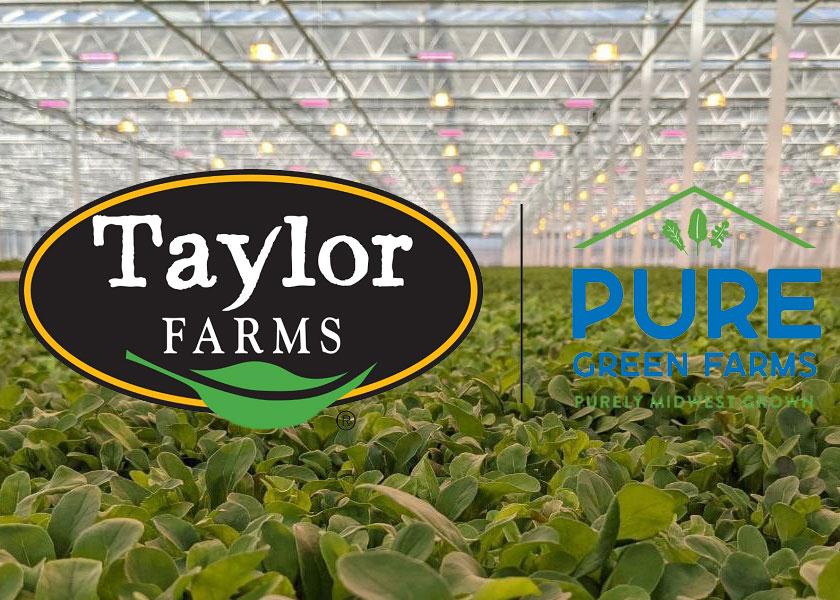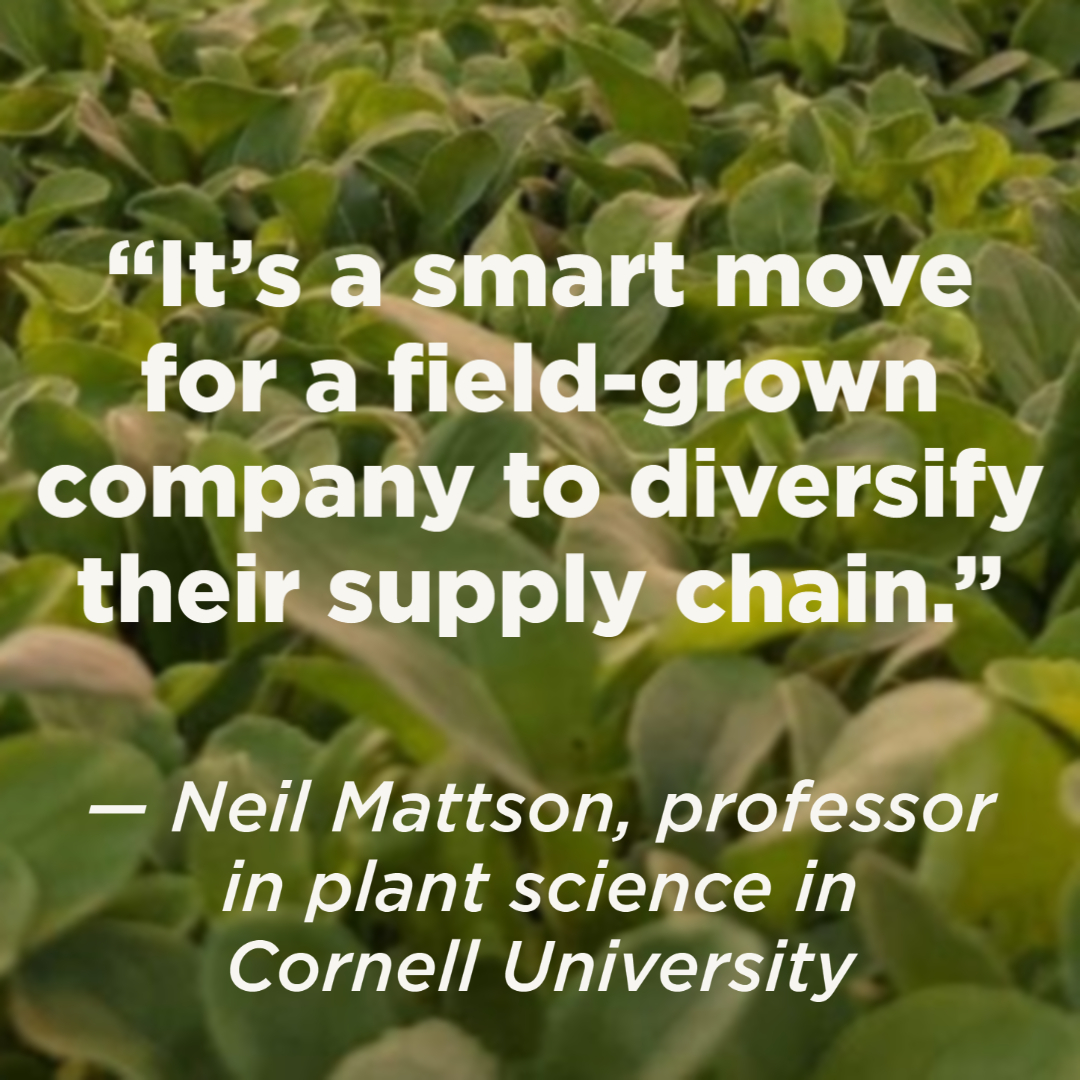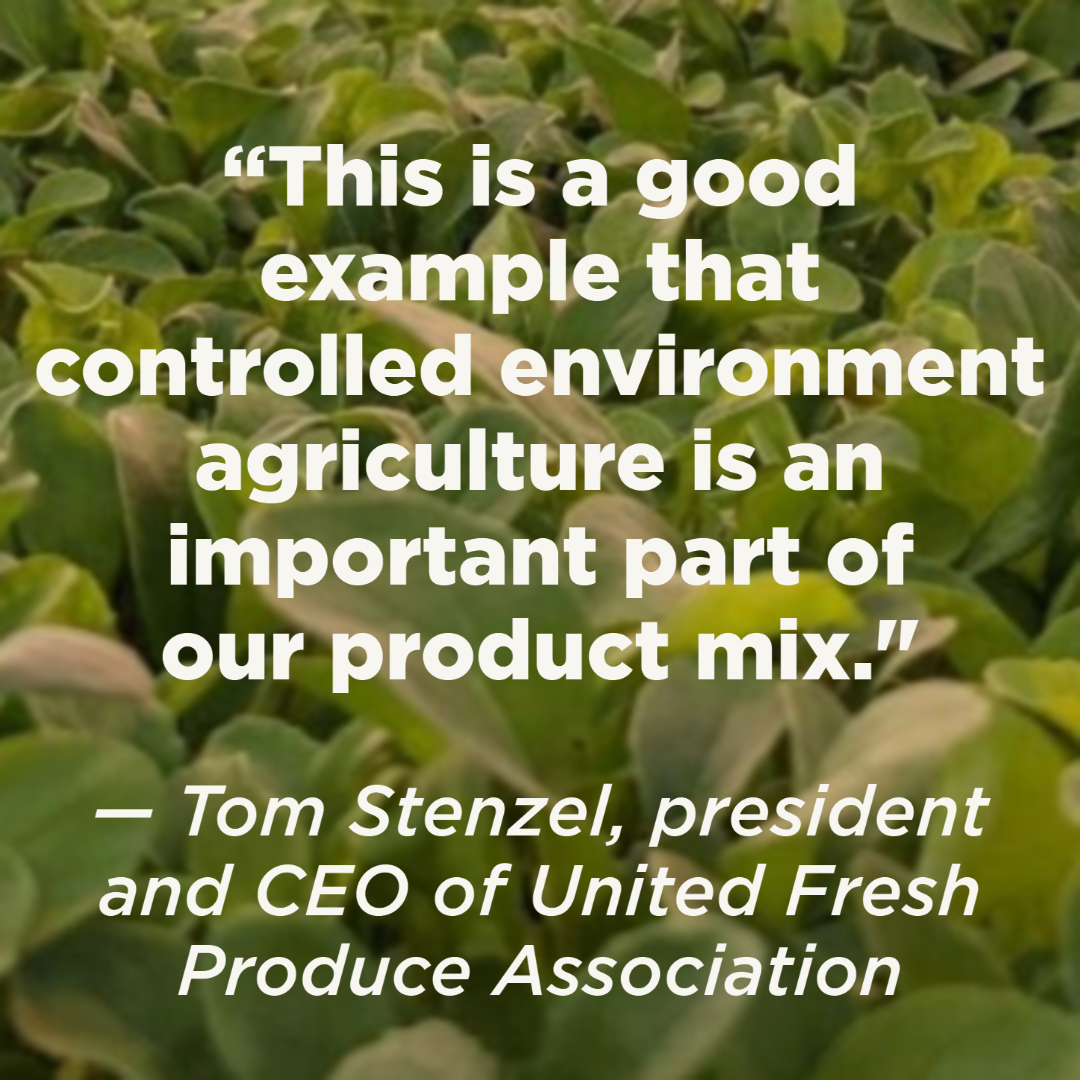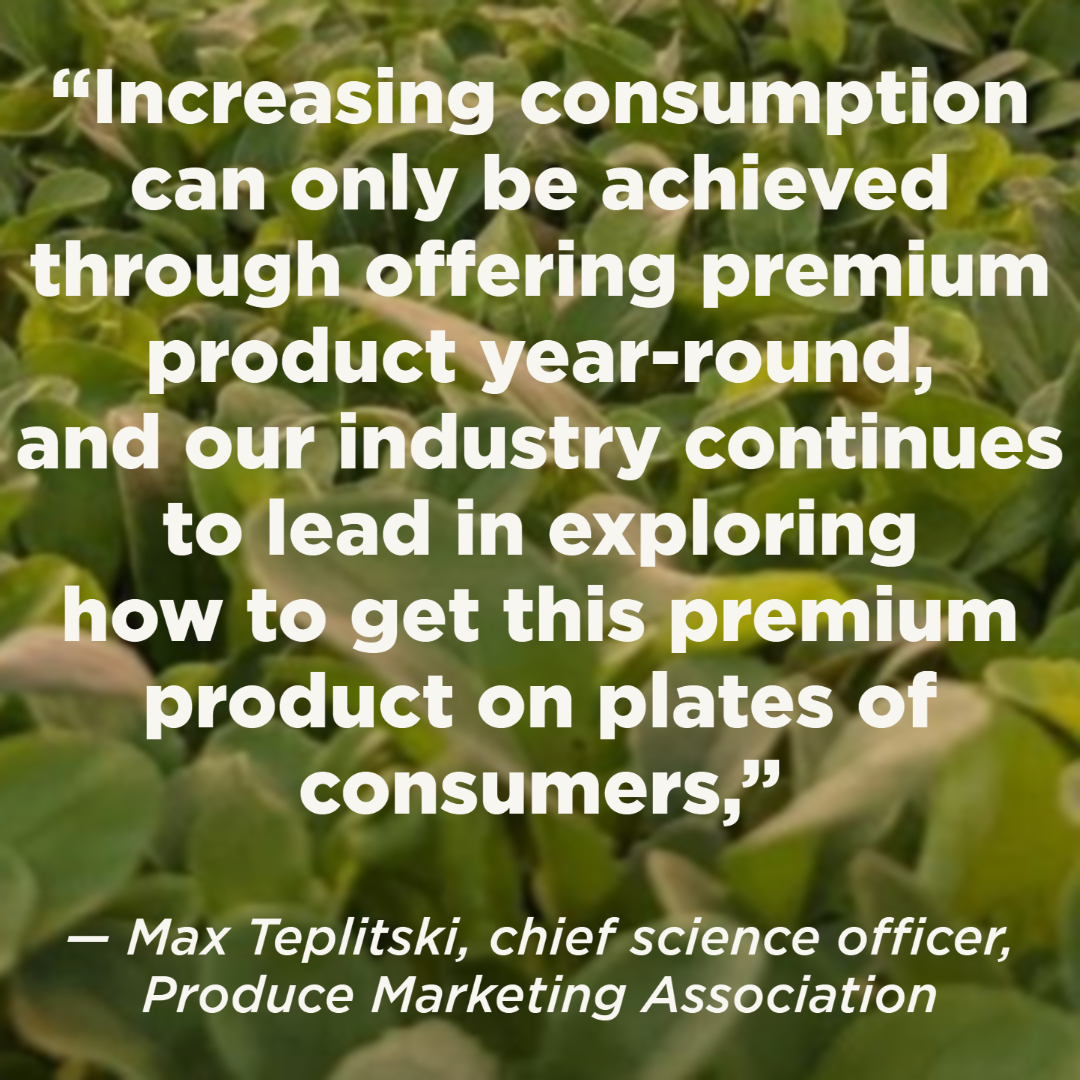What Taylor Farms’ Pure Green investment means

When one of the nation’s largest fresh-cut produce companies decides to invest in the innovative, startup-filled agtech sector, the industry notices. Specializing in salads, Salinas, Calif.-based Taylor Farms has more than 20,000 employees across North America, from field farms to facilities for processing and packing.
Less than a week after Taylor Farms revealed that it will invest in South Bend, Ind.-based Pure Green Farms, industry leaders and experts in controlled environment agriculture (CEA) have weighed in on this action. The Midwest facility hydroponically grows, packs and ships leafy greens year-round using a climate-controlled, automated process.
Read related: Taylor Farms announces investment with Pure Green Farms
Pure Green Farms’ first harvest was in March 2020, on a site that can potentially expand up to 300 acres, according to a news release. “To me, it’s a smart move for a field-grown company to diversify their supply chain,” said Neil Mattson, professor in plant science in Cornell University, director of its CEA program and greenhouse extension specialist. “CEA has its place, but it certainly has its constraints too.”

Going far beyond the traditional greenhouse, the indoor agtech sector is capital-intensive and energy-intensive, at least at the start, he said. “But with external factors like climate change, labor and in some cases food safety, I think it can make sense,” Mattson said. “And then, why not a field grower? Someone that already understands the process, the market.”
The terms of the investment were not disclosed by the companies.
This expansion will complement Taylor Farms’ existing 122,200 crop-acre field-grown program and 16 salad-producing facilities across North America, according to the release. “We’re excited to venture into the industry of indoor growing with this investment,” Bruce Taylor, founder and CEO of Taylor Farms, said in the release. “Our customer partners have asked for a national solution, and this is our first step.”
Of course, this isn’t the first field grower to get into high-tech indoor production.
Salinas-based Tanimura & Antle grows vegetables in different California and Arizona fields depending on season, and also lettuces at greenhouses in Livingston, Tenn. “This rotation schedule ensures not only premium quality products, but surety of supply for our customers and consumers,” according to the company website.
Many commercial tomato operations have long been using CEA facilities, Mattson said. “But the CEA lettuce growers I talk to feel like with these external
forces like climate change and labor, they think over time we are going to see more and more of a shift into CEA for leafy greens,” he said.
Tom Stenzel, president and CEO of United Fresh Produce Association, said he agrees that it makes sense for a successful company such as Taylor

Farms to have a stake in this part of the agriculture industry. “This is a good example that controlled environment agriculture is an important part of our product mix,” Stenzel said. “I’m sure our industry will continue to be innovative in meeting consumer demand through multiple production methods and channels of distribution.”
Read related: Why lettuce greenhouse sector's growth is focused in the U.S.
The produce industry has always invested in innovation, said Produce Marketing Association’s Max Teplitski, chief science officer leading PMA’s science, technology, supply chain and sustainability efforts.
“Increasing consumption can only be achieved through offering premium product year-round, and our industry continues to lead in exploring how to get this premium product on plates of consumers,” Teplitski said.
CEA-grown lettuce makes more economic and farming sense than some other commodities would because of the fast growth cycle and small space needed.

That’s just one of many factors in the growth of AeroFarms, an indoor vertical aeroponic farming company based in Newark, N.J. While it’s true CEA can address the pressures of extreme weather, water shortages, increasing labor costs, and food safety recalls, this sector does come with a host of other considerations not found in field farming and can require a learning curve to integrate. And lower tech greenhouses, such as those that use sunlight, can still be susceptible to at least some weather and yield variations seen in outdoor agriculture. But more competition and investment can help the industry overall, said David Rosenberg, AeroFarms CEO and cofounder.
“Investment in CEA is necessary to drive long-term solutions for feeding a growing population in the face of resource depletion and climate change. To truly address these challenges and fix our food system, CEA needs to eliminate variables such as weather and changing growing conditions, which impact yields,” Rosenberg said.
“We believe CEA, and in particular indoor vertical farming, has the greatest impact when proven innovations are scaled on a global level to achieve better productivity, efficiency and quality, using even fewer resources and inputs.”
Read related: How to change the face of agriculture







